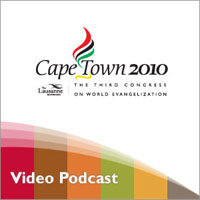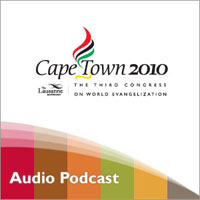
Walls explains that “Church history has always been a battleground for two opposing tendencies; and the reason is that each of the tendencies has its origin in the Gospel itself.”
He first looks at the “indigenzing principle”:
On the one hand it is of the essence of the Gospel that God accepts us as we are, on the ground of Christ’s work alone, not on the ground of what we have become or are trying to become. But, if He accepts us “as we are” that implies He does not take us as isolated, self-governing units, because we are not. We are conditioned by a particular time and place, by our family and group and society, by “culture” in fact. In Christ God accepts us together with our group relations; with that cultural conditioning that makes us feel at home in one part of human society and less at home in another. . . .
The fact, then, that “if any man is in Christ he is a new creation” does not mean that he starts or continues his life in a vacuum, or that his mind is a blank table. It has been formed by his own culture and history, and since God has accepted him as he is, his Christian mind will continue to be influenced by what was in it before. And this is as true for groups as for persons. All churches are culture churches—including our own. (pp. 7-8)
Then Walls looks at the “pilgrim principle” of Christianity:
But throughout Church history there has been another force in tension with this indigenizing principle, and this also is equally of the Gospel. Not only does God in Christ take people as they are: He takes them in order to transform them into what He wants them to be. Along with the indigenizing principle which makes his faith a place to feel at home, the Christian inherits the pilgrim principle, which whispers to him that he has no abiding city and warns him that to be faithful to Christ will put him out of step with his society; for that society never existed, in East or West, ancient time or modern, which would absorb the word of Christ painlessly into its system . . .
Just as the indigenizing principle, itself rooted in the Gospel, associates Christians with the particulars of their culture and group, the pilgrim principle, in tension with the indigenizing and equally of the Gospel, by associating them with things and people outside the culture and group, is in some respects a universalizing factor.
The Christian has all the relationships in which he was brought up, and has them sanctified by Christ who is living in them. But he has entirely a new set of relationships, with other members of the family of faith into which he has come, and whom he must accept, with all their group relations (and “disrelations”) on them, just as God has accepted him with his. Every Christian has dual nationality, and has a loyalty to the faith family which links him to those in interest groups opposed to that to which he belongs by nature. (pp. 8-9)
Here we can see these principles on a chart:
| Pilgrim Principle | Indigenous Principle | |
| But Not of the World—and Be In It | “They are not of the world, just as I am not of the world” (John 17:16). | “I do not ask that you take them out of the world, but that you keep them from the evil one” (John 17:15) |
| Separate—and Participate | “Therefore go out from their midst, and be separate from them, says the Lord, and touch no unclean thing” (2 Cor. 6:17). | “I wrote to you in my letter not to associate with sexually immoral people—not at all meaning the sexually immoral of this world . . . since then you would need to go out of the world. But now I am writing to you not to associate with anyone who bears the name of brother if he is guilty of sexual immorality” (1 Cor. 5:9), |
| Confront—and Adapt | “The wrath of God comes upon the sons of disobedience. Therefore do not associate with them. . . . Take no part in the unfruitful works of darkness, but instead expose them” (Eph. 5:6-11). “Indeed, all who desire to live a godly life in Christ Jesus will be persecuted” (2 Tim. 3:12). | “Aspire to live quietly, and to mind your own affairs, and to work with your hands . . . so that you may live properly before outsiders and be dependent on no one” (1 Thess. 4:11-12). “[I pray] that we may lead a peaceful and quiet life, godly and dignified in every way” (1 Tim. 2:2). |
| Refuse Conformity—and Contextualize | “Do not be conformed to this world, but be transformed by the renewal of your mind” (Rom. 12:2) | “I have become all things to all people, that by all means I might save some” (1 Cor. 9:22). “Give no offense to Jews or to Greeks or to the church of God, just as I try to please everyone in everything I do, not seeking my own advantage, but that of many, that they may be saved” (1 Cor. 10:32-33). |
“May God give all of us grace to find and maintain the gospel balance.”- JT








